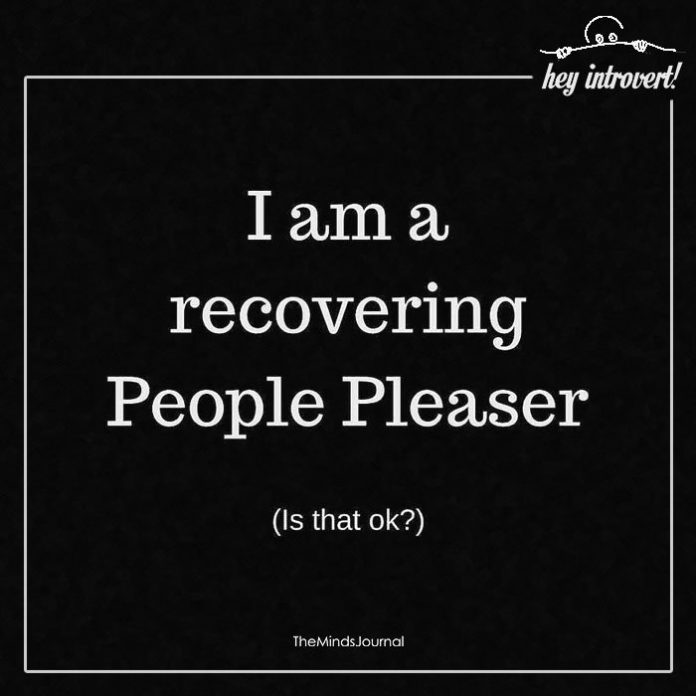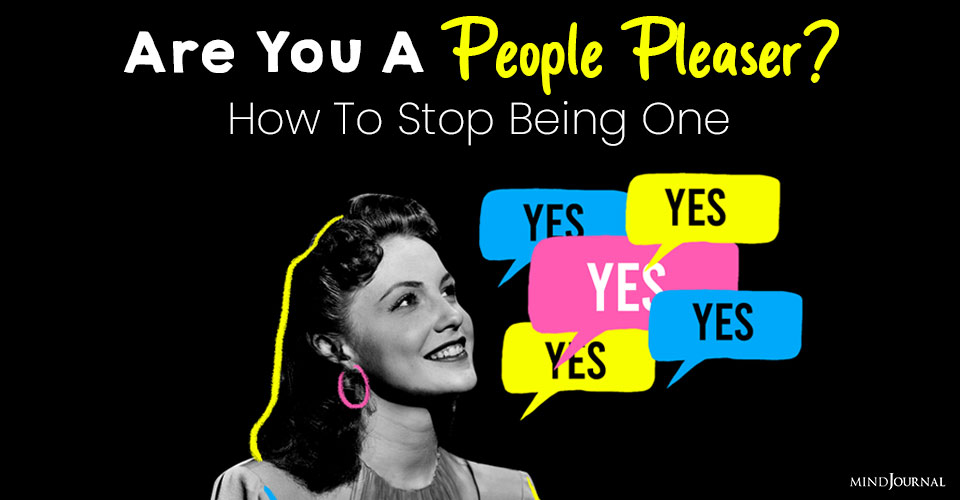“I’m done living for other people. I’m done being a people pleaser. I’m done thinking about what people think about me” – Shailene Woodley
Going through a toxic relationship with a narcissist often leads to a very unhealthy habit: people-pleasing. How often have you not followed your heart because you were worried about what other people might think? How often have you avoided doing something you truly wanted to do because you couldn’t stand the idea that other people would judge you?
What is people-pleasing?
To put it really simply, “people-pleasing” is what we call it when you find yourself putting the needs of others ahead of your own, to the point where it becomes detrimental to your mental health. For example, I spent so much energy worrying about what other people thought of me in my own toxic relationships that I completely lost sight of my own needs.
This caused me to shut down and lose all passion for life in general. Of course, being a people pleaser is a prevalent behavior for survivors of narcissistic abuse — so common that it’s actually seen as a personality trait (and, in some cases, a symptom of C-PTSD).
Related: How To Stop People-Pleasing and Still Be Nice: 5 Rules To Live By
Why do survivors of narcissistic abuse tend to be people-pleasers?
It’s totally normal to be concerned about what other people think of you on some level. We all want to be accepted and loved. So it’s not surprising that most of us want to please the people who we care about.
But for survivors of abuse, people-pleasing is more of a survival tactic, and it’s all about avoiding negative attention. When you’re a people pleaser, you place everyone else’s needs over your own because that gets you the one thing that matters (and the one thing most survivors of narcissistic abuse are seriously lacking): validation.
See, if you grew up with a narcissistic parent or in a toxic family, chances are that you learned very quickly that the only way you could get the love (that every kid needs) was to make the toxic parent(s) in your life happy.
From infancy, we learn that when we do what someone else wants us to do, they’re happy with us–and that feels good. However, as we get older and learn to make the occasional unpopular decision, we are sometimes shocked that some people actually seem to stop being nice to us when we don’t follow their “advice” for living.
But ultimately, we care what people think because we are taught to base our identities on the messages they give us. When our parents tell us we’re good at following their rules, we begin to feel that we need to follow the rules to be good. When our teachers scold us for coloring outside the lines, we begin to feel that unless we “stay inside the lines,” we’re wrong.
We take the messages that we hear from others about ourselves every day of our lives, and we internalize them – to such an extent that we find ourselves dependent on the approval of others for our own self-worth.
What most people pleasers don’t realize, though, is that their desire to please comes from deep insecurity and is often at the expense of their own happiness. The truth is, no matter how hard you try, there will always be people who won’t like you and some who will even hate you. There will also be times when following your heart won’t make sense to other people. The only person whose opinion matters is you!

Is being a people pleaser a bad thing?
People-pleasing isn’t necessarily bad, but it can become very toxic for some of us because we become programmed to put others first and sacrifice our own needs. It is amazing how much you can change when you realize that people-pleasing is toxic, and it’s getting in the way of your own happiness.
People-pleasing has become so second nature to us that we hardly notice it most of the time. We go through life as if we’re constantly treading water and really struggle to stand up for ourselves to be who we want to be, rather than who others expect us to be. It’s time to take a step back and look at how much damage we are doing by trying to please everyone.
Related: 7 Signs of People Who Crave Love And How To Stop It
What are the toxic effects of people-pleasing behavior?
Have you based your major life choices on your own desires, or have you allowed other people to influence you? Do you have regrets because you have given someone else the power to make decisions in your life, whether directly or indirectly? For example, have you chosen your job, a partner, or home because someone else thought you should?
At one time or another, almost everyone has made a choice in their lives that was based on someone else’s opinion. And while there are certainly times when it’s appropriate to do so, there are plenty of times that we regret not following our own intuition.
The difference is this: when you accept the advice of someone else because you feel that it’s right for you, you’re following your own gut and can consider it inspired action–but when you bend to someone else’s will to please them (despite your own feelings), you’re shortchanging yourself in the happiness department.
Are You a People Pleaser? This is How You Cure the Disease to Please
In this video, we will talk about how to stop being a people pleaser (right now) and how to stop caring what people think. So if you are always people pleasing and you’re sometimes accused of having people pleaser syndrome, this video is for you.
Written by Angie Atkinson Originally appeared on Queenbeeing Republished with permission.




Leave a Reply